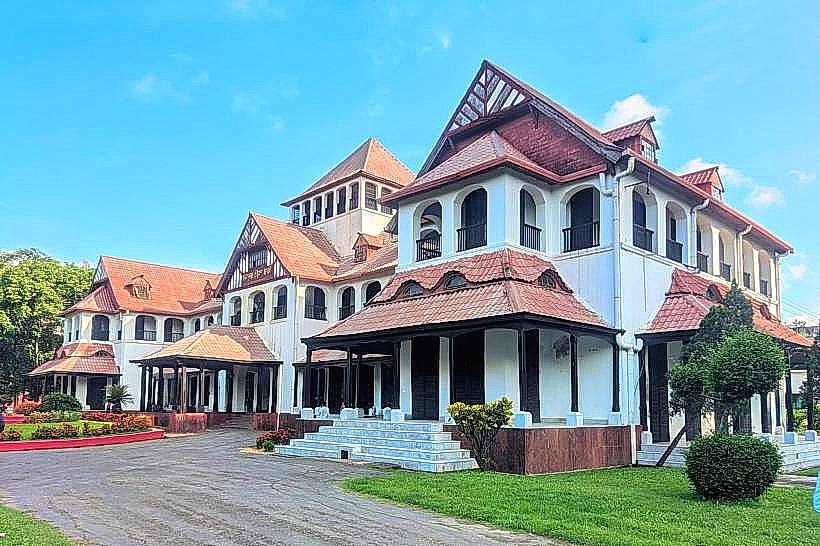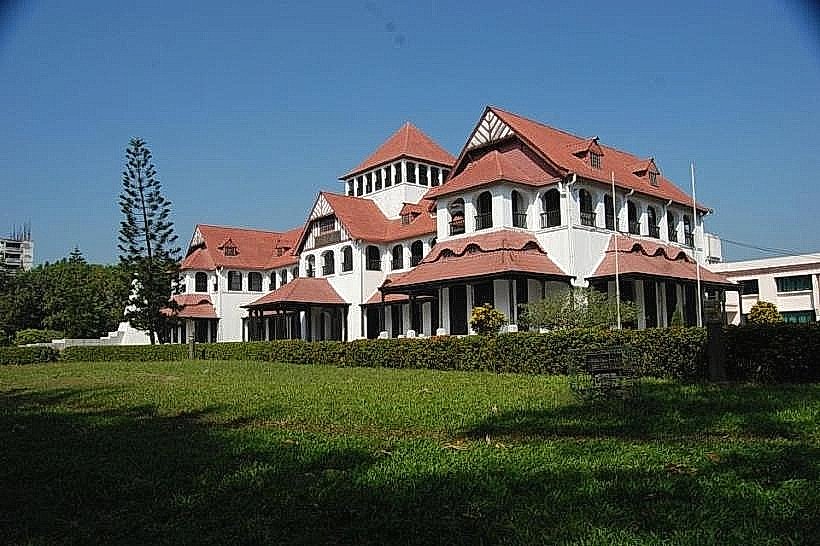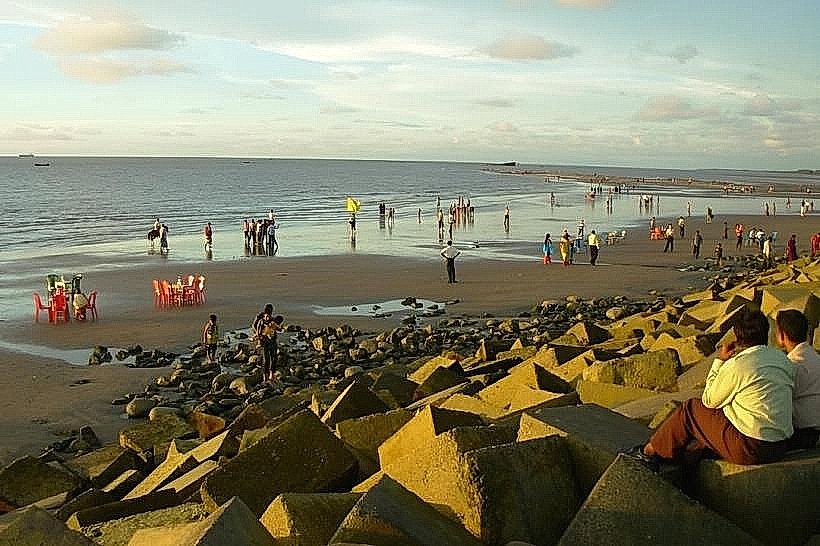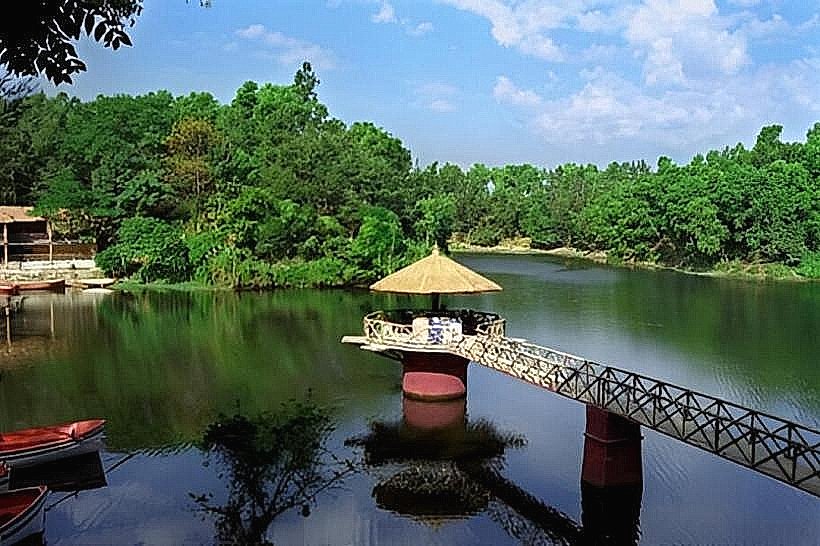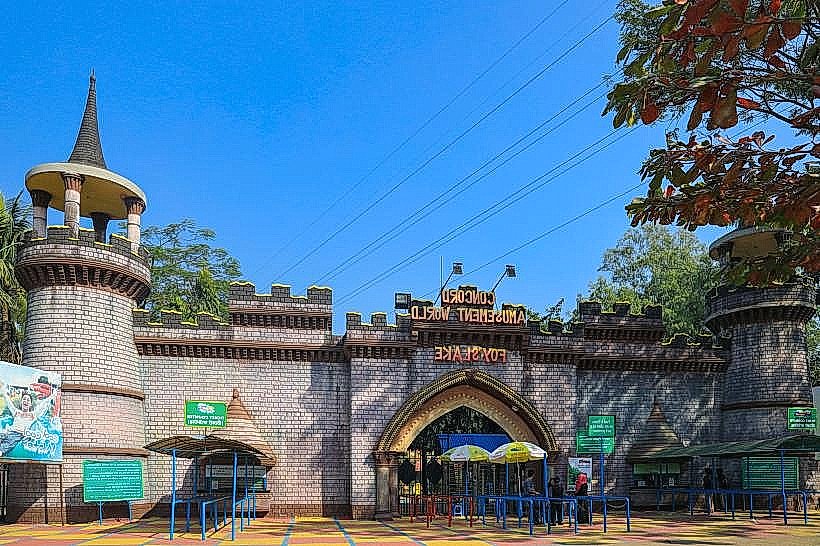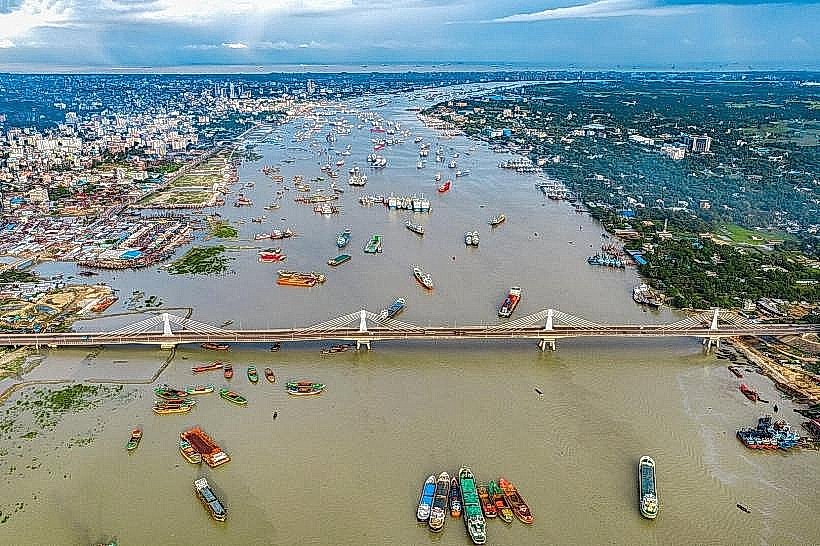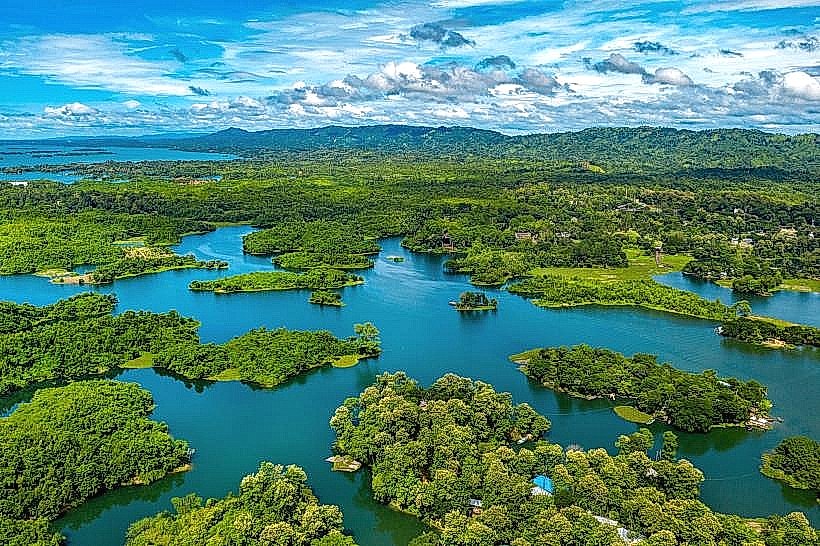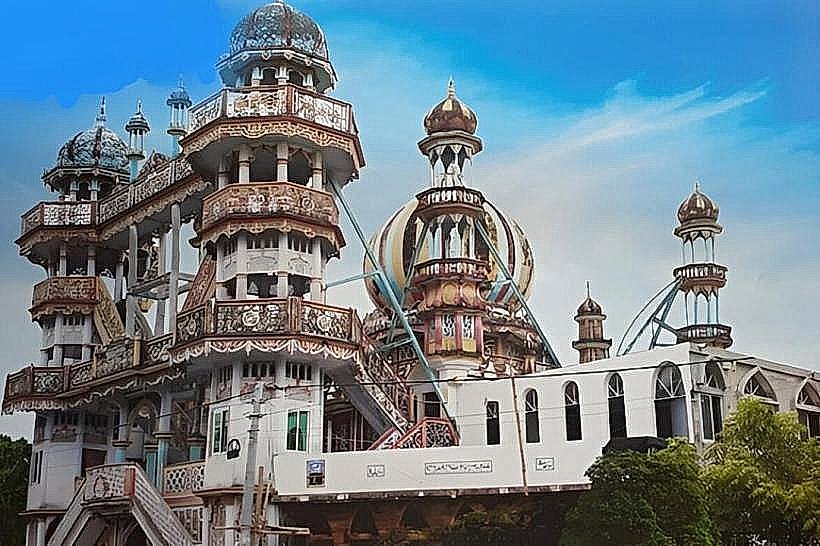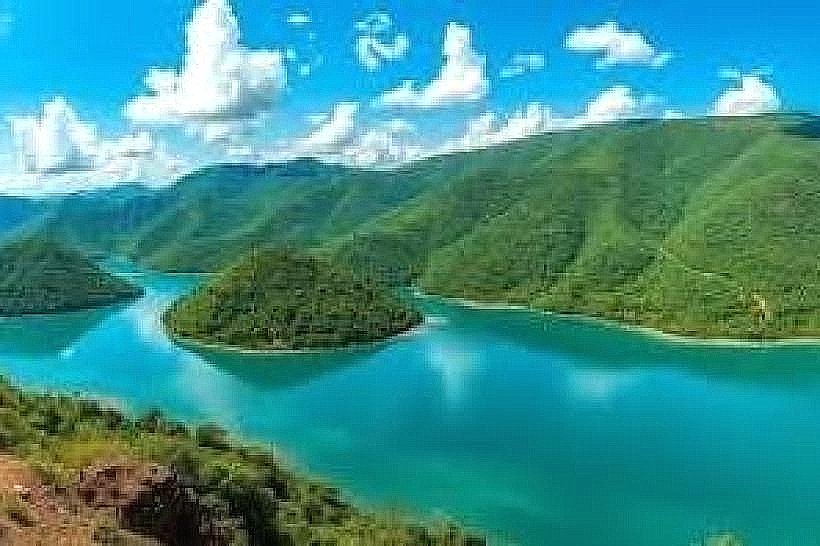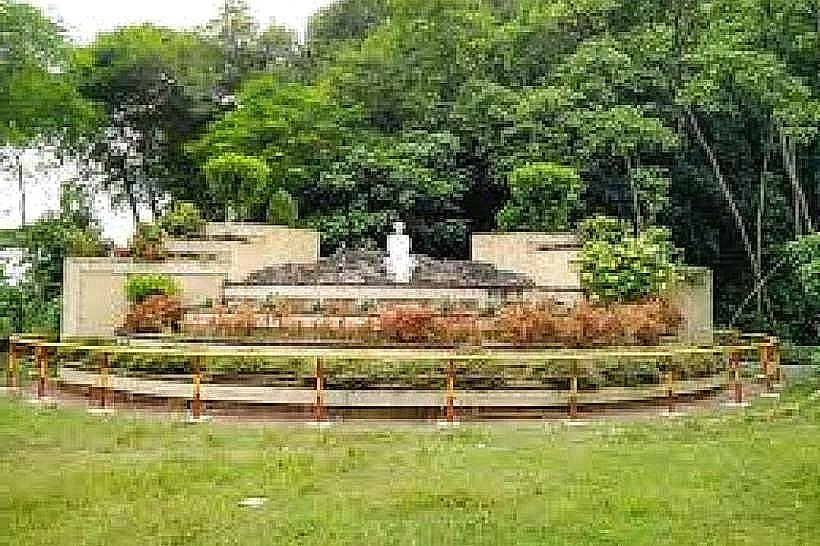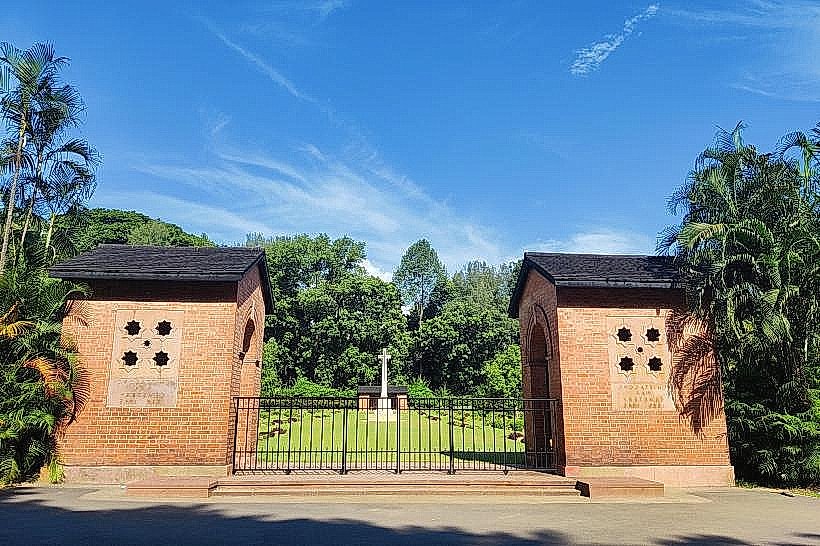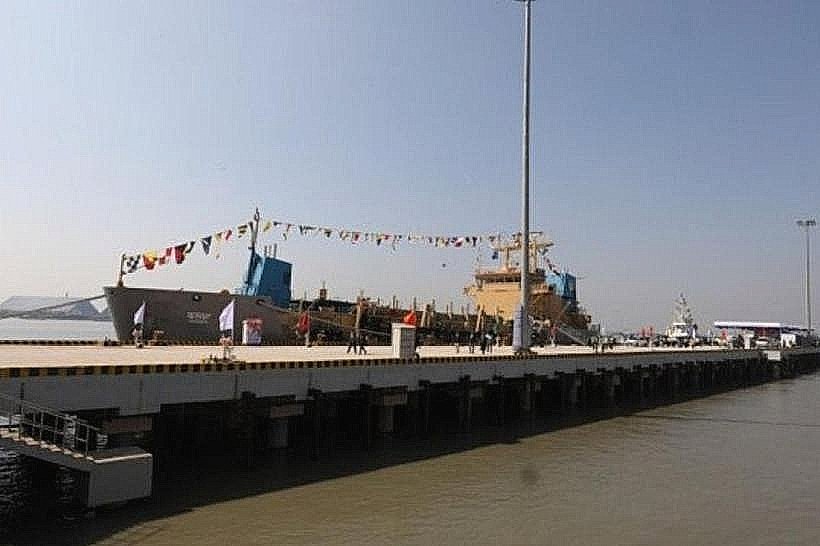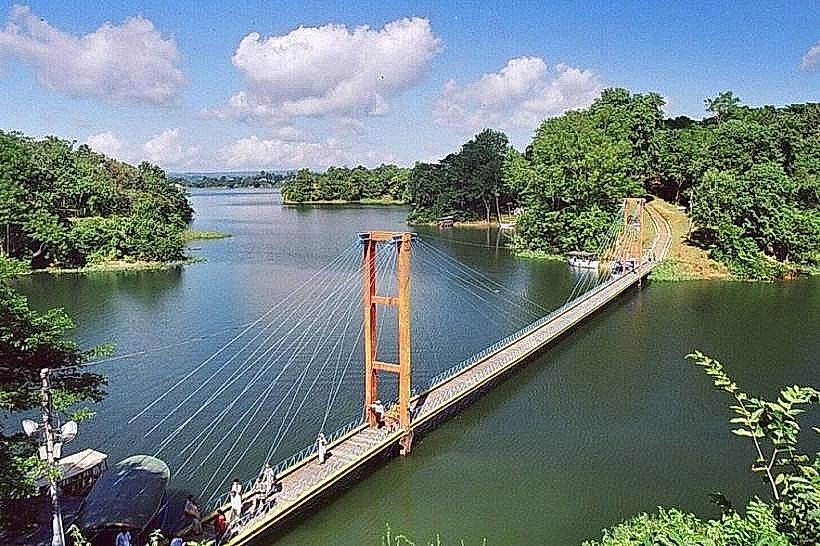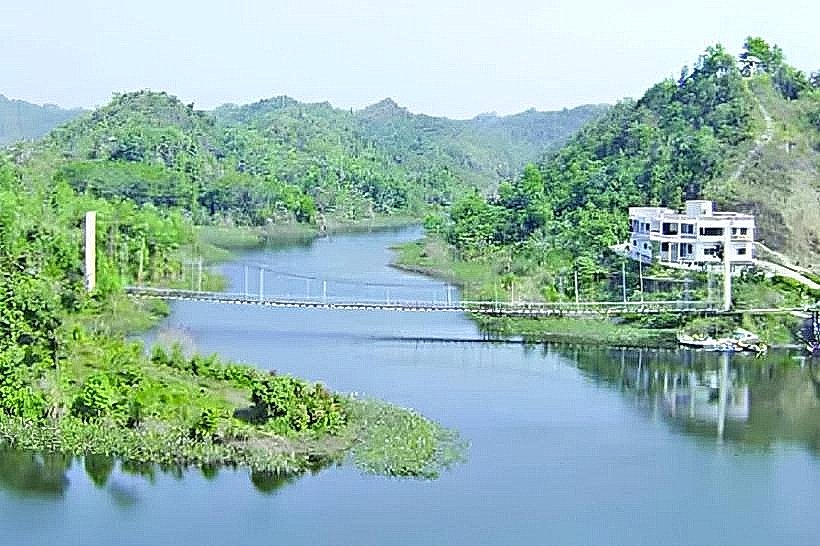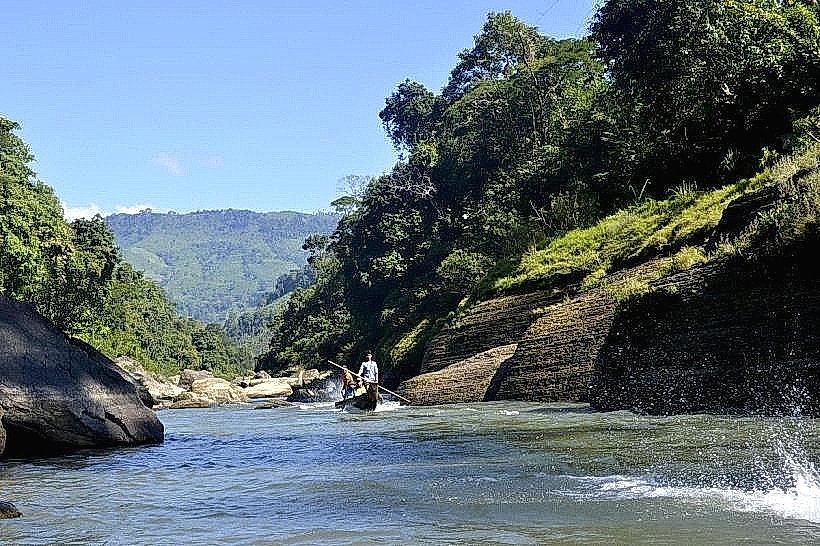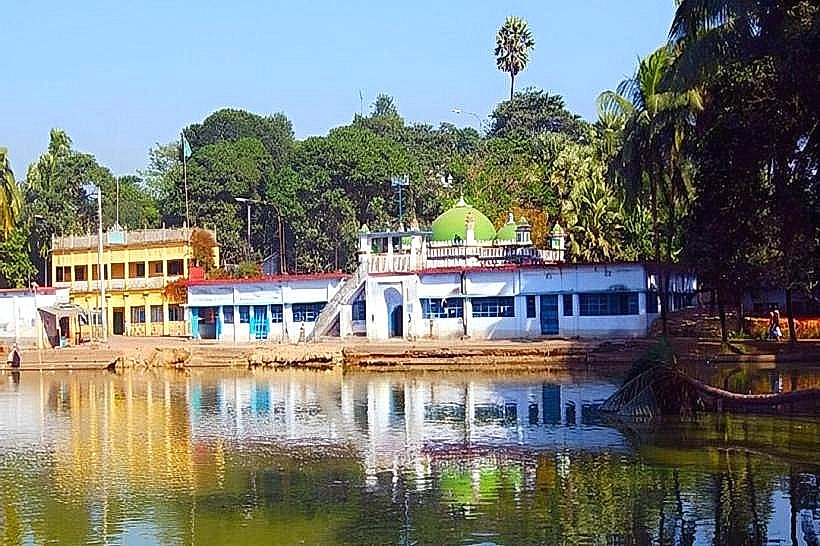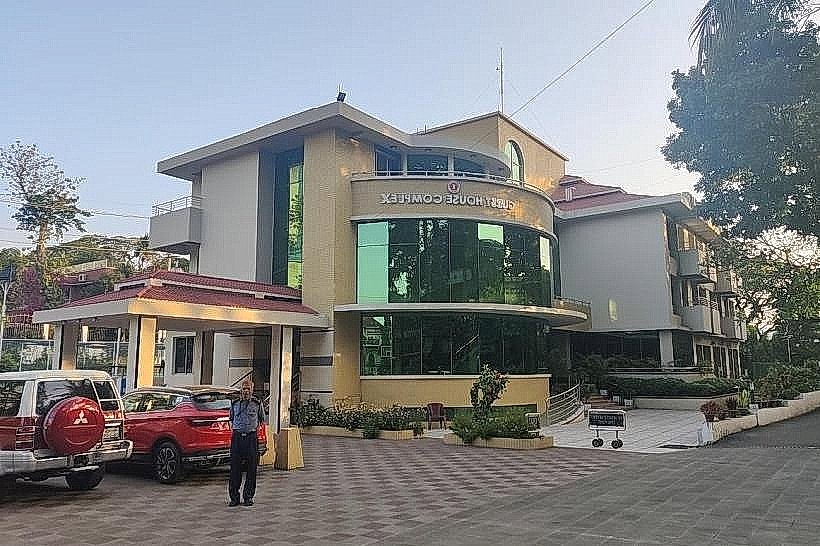Information
Landmark: Jadukata RiverCity: Chittagong
Country: Bangladesh
Continent: Asia
Jadukata River, Chittagong, Bangladesh, Asia
The Jadukata River is a river located in the Sunamganj District of Bangladesh, near the Indian border. It is known for its clear waters and surrounding natural beauty.
Visual Characteristics
The riverbed is composed of smooth, rounded stones of varying sizes, predominantly grey and white. The water clarity allows visibility of the riverbed. Surrounding vegetation consists of dense green foliage, including trees and grasses, particularly on the riverbanks. During certain seasons, the water level can be low, exposing more of the stone-covered riverbed.
Location & Access Logistics
The Jadukata River is situated in the Tahirpur Upazila of Sunamganj District. It is approximately 80 kilometers north of Sylhet city. Access is typically via road to Tahirpur town, followed by a local boat or engine-driven boat (locally known as a 'trawla') to reach specific points along the river. There is limited formal parking; vehicles are usually parked in Tahirpur town. Public transport to Tahirpur involves buses from Sylhet to Sunamganj, then a local bus or auto-rickshaw to Tahirpur.
Historical & Ecological Origin
The Jadukata River is a natural river system, part of the larger Meghna River basin. Its formation is a result of geological processes common to the Sylhet region, characterized by alluvial deposition and riverine erosion over millennia. The river's course is influenced by monsoon rainfall and the topography of the northeastern highlands.
Key Highlights & Activities
Boating along the river is the primary activity. Visitors can observe the stone-covered riverbed and the surrounding natural landscape. During the dry season, walking across the exposed riverbed is possible. Photography is a common activity due to the river's visual characteristics.
Infrastructure & Amenities
Basic amenities are limited directly along the river. Small local food stalls may be present near boat landing points in Tahirpur. Restrooms are generally not available at the river itself; facilities are found in Tahirpur town. Cell phone signal is intermittent, with 4G coverage being unreliable in remote sections.
Best Time to Visit
The best time to visit is during the dry season, from November to March, when water levels are lower, and the riverbed is more exposed. The late afternoon offers softer lighting for photography. Avoid the monsoon season (June to September) due to heavy rainfall and potential flooding.
Facts & Legends
Local folklore suggests the river's name, "Jadukata," is derived from the word "Jadu" (magic) and "Kata" (cut), implying a magically carved river. A specific point of interest is the confluence with the upstream Surma River, which can create unique water flow patterns.
Nearby Landmarks
- Tahirpur Upazila Parishad (0.8km South-West)
- Shimulbagh Resort (2.5km North)
- Barikka Tila (4.0km North-East)
- Haor National Park (Tanguar Haor access point) (6.0km North-West)

